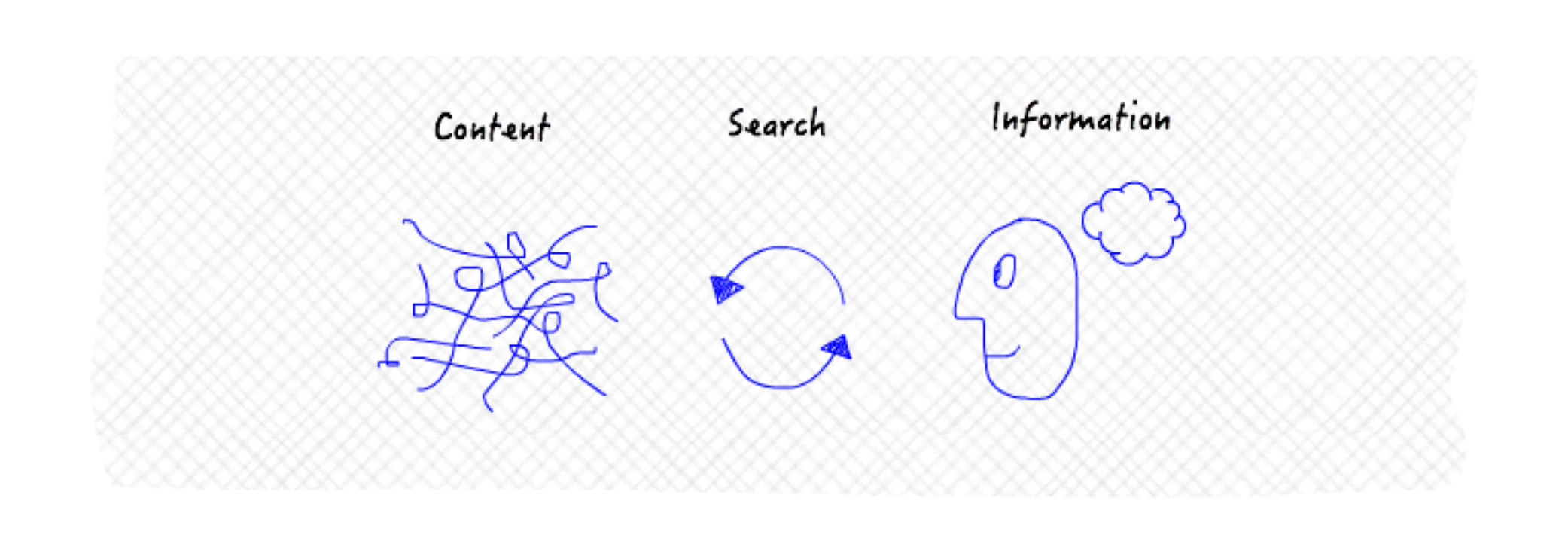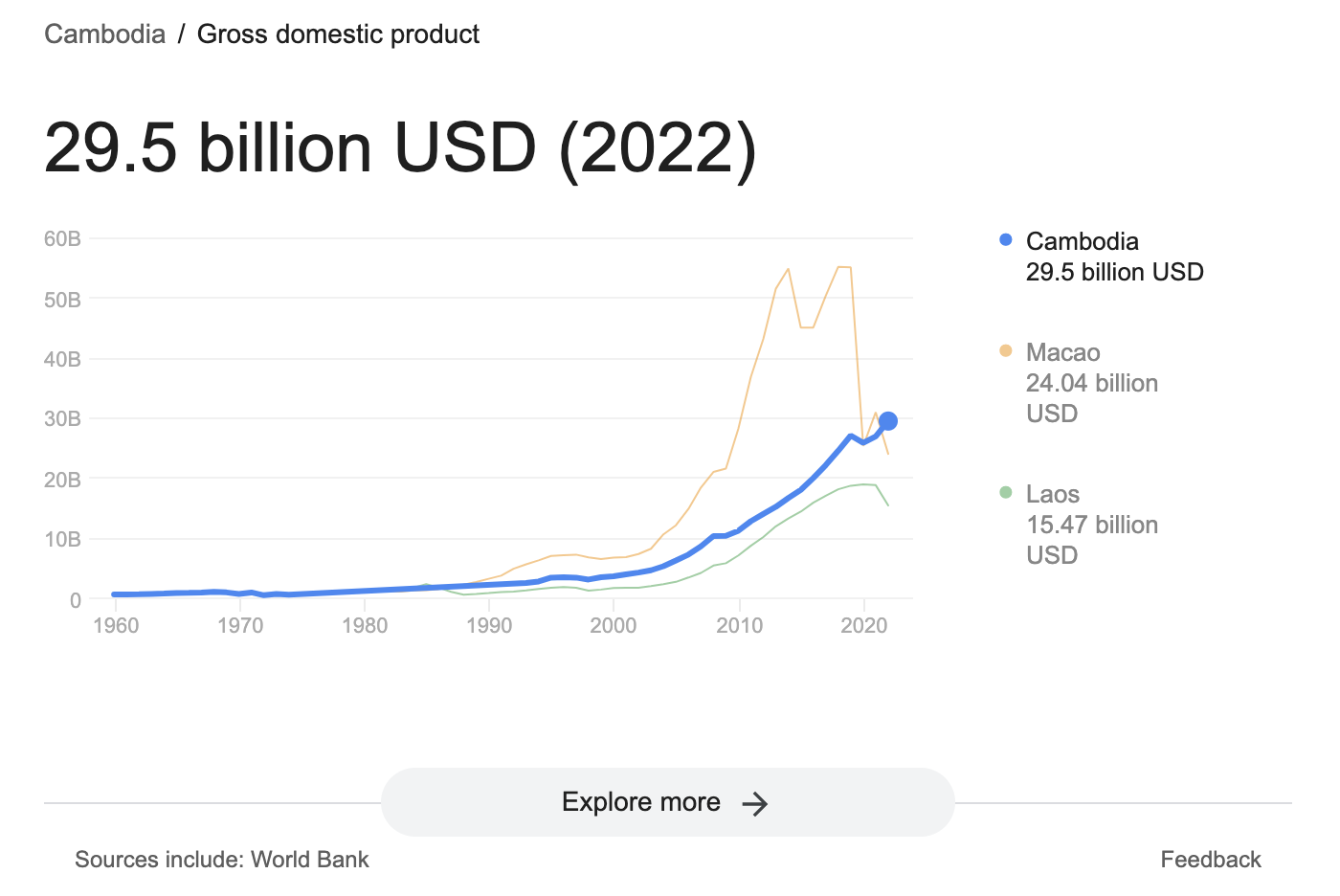 Move About PebbleRoad
Move About PebbleRoad
Open About PebbleRoad
About PebbleRoad
PebbleRoad is a Singapore-based innovation and design consultancy. We envision a world where digital business transformation is not just a buzzword but a catalyst for meaningful, sustainable growth. We aim to deliver this outcome by empowering our clients with the experience and expertise to achieve strategic clarity, build innovative digital products, and grow capabilities.
Enterprise search is surging again in the age of GenAI. The lure of natural language queries and replies is driving many to throw their content into large language models (LLMs) only to be disappointed with the results. Knowing what goes into a good search experience is still relevant and essential. We hope this guide will offer critical pointers that can help improve the search experience for your staff.
Happy reading!
About PebbleRoad
127 words
 Move Introduction
Move Introduction
Open Introduction
Introduction
This book is for those experimenting with enterprise search. If you believe that a good search experience has value and find yourself working hard to make this vision a reality, this book is for you.
The book is written with an eye on the future. The amount of data and content in organisations is exploding, and there is an urgent need to tame, organise, and gain insights from it. These are the challenges that the enterprise search is positioned to solve. And the timing could not be better. Search technologies are maturing and converging (think GenAI), offering vast opportunities to design unique search experiences. Welcome to the future, you lucky search person!
Introduction
114 words
 Move Search fundamentals
Move Search fundamentals
Open Search fundamentals
Search fundamentals
As a search person, you must be clear on fundamental search concepts. Don’t be fooled into thinking that because you use Google daily, you know all there is to know about search.
What is search?
Search is finding and using information to get a job done. For example, searching for the travel claims policy before travelling to know which expenses are reimbursable and which are not. The success of the ‘job’ is not to get a document on travel policy but to use the information gained to make well-informed decisions.
The word ‘information’ here means the interpretation or understanding the user gets after the search experience. The ‘content’ is what the user goes through to get information. Content is what is provided (e.g., document or webpage); information is what the user understands.

Why search?
Organisations have become voracious creators and consumers of content, and the
Search fundamentals
595 words
 Move What is search experience?
Move What is search experience?
Open What is search experience?
What is a search experience?
User experience, customer experience, search experience—we hear these terms every day. But really, what is this experience thing?
An experience is what a person goes through and remembers.
Let's unpack this definition.
When you are searching, you quickly become immersed in the act. Your expectations are tested and challenged. You are constantly assessing the interaction. The interaction takes over your thinking, feeling and doing. You are now in an experiencing state of mind. Daniel Kahneman, Nobel Prize winner and author of Thinking, Fast and Slow, calls this the “experiencing self”. This self lives in the present and takes in the good and bad moments.
The present is delicate. It is easily influenced. You may be experiencing a perfect date night, but a single persistent housefly in love with your head can ruin it all.
In search, irrelevant results, random link
What is search experience?
600 words
 Move The elements of a search experience
Move The elements of a search experience
Open The elements of a search experience
The elements of a search experience
There are many references to the elements of search experience in the literature. For example, in Search Patterns, authors Peter Morville and Jeffery Callender call out five parts of the search ‘anatomy’: users, creators, content, engine, and interface.
In Designing the Search Experience, authors Tony Russell-Rose and Tyler Tate call out four ‘dimensions’ of the search experience: users, goals, context, modes.
Finally, Martin White, in his book, Enterprise Searchemphasises user, technology and governance.
Don’t worry if you don't understand these terms. You will soon.
By synthesising the findings from the literature and layering them with
The elements of a search experience
149 words
 Move 1. Goals
Move 1. Goals
Open 1. Goals
1. Goals
If you were in charge of a self-service support website, would you design the search differently if your objective was to lower escalations from the website to the call centre?
Yes, you would.
You would start by identifying the circumstances under which people escalate and then set out to address each situation systematically. Because a self-service website is content-centric, you may investigate content, navigation, and search. You would then define goals for each of them, setting their direction and expectations. This way, the search becomes a player, not a bystander, to lower escalations.

Search is a player, not a bystander in meeting business objectives
In this case, the search goal may be to help customers find the right answers effortlessly so that they can resolve their issues and get on with their jobs. With the goal defined, you now have criteria for selecting the right ideas.
1. Goals
536 words
 Move 2. User
Move 2. User
Open 2. User
2. User
If you knew something special about the users of your search app, would you design the experience differently?
Yes, you would.
For example, if you know that policymakers who use your search app need data for their work, how would you address a query like, "What is the GDP of Cambodia?" Would you give them links to documents containing the GDP data for Cambodia? Or would you show the GDP data and the answer directly in the results snippet, as Google does?

Google gives a direct answer in response to the query: GDP of Cambodia.
In Designing the Search Experience authors Tony Russell-Rose and Tyler Tate introduce the concept of “search modes” to counter the commonly held assumption that search is just about finding something. They state:
Defining the search problem as one of f
2. User
1,059 words
 Move 3. Interface
Move 3. Interface
Open 3. Interface
3. Interface
The interface is the most visible element of the search experience. Most people know what a search interface looks like, and more often than not, it's one interface in particular. The image comes to mind when anyone hears the word "search." We're talking, of course, about Google.
Google's dominance of web search is unquestionable. Their interface is a cultural symbol. The year Google launched—1998—will be included in a chart of humanity's evolution. Herein lies the problem for those working with enterprise search.
While Google’s interface is ideal for search performance over web content, it is suboptimal for search performance over enterprise content, which includes the organisation’s websites, intranets, and apps.
For example, if you run a property investment website that helps customers buy property and rent it out, how will you guide them to make the best investment choices? Would you show a Google-like listing of the 10 investment opportunities for a given area? Or would you show
3. Interface
1,615 words
 Move 4. Content
Move 4. Content
Open 4. Content
4. Content
If the search interface is the most visible and familiar element of the search experience, then the quality of the indexed content is the most overlooked. Good quality content is critical for creating amazing search experiences. The challenge is first being aware of the correlation.
Search still has a ‘magic box’ appeal to many in the enterprise. They feel that search should work with any content. Again, they cite Google as an example. Little do they know that web publishers these days work hard to create good quality, web-friendly content so that it can rank high in Google search results.
For example, Google rewards pages that follow good HTML markup practices, such as using the <title> and <h1> tags for structure and those that use schema.org for marking up data in the pages such as <Place> and <PostalAddress> for describing locations. There are over 800 types listed on schema.org, and new ones are regularly added.
Comparatively
4. Content
963 words
 Move 5. Context
Move 5. Context
Open 5. Context
5. Context
The 1981 edition of the Guinness Book of World Records carried an entry of the “shortest literary correspondence on record”:
The shortest literary correspondence on record was that between Victor Marie Hugo (l802-85) and his publisher, Hurst and Blackett, in l862. The author was on holiday and anxious to know how his new novel Les Misérables was selling. He wrote “?”. The reply was ‘!’.
There is doubt as to whether the story is true, but if it ever did happen, it is an excellent example of context at play. Only those two people knew what was going on. In this case, context is all of the unsaid that influenced all of the said.
Context is the information one uses to understand a situation. When context is missing or wrong, we say that the understanding is “out of context.” But when it is present, everything speeds up, becomes simpler, and even enjoyable, like the claimed correspondence between Victor Hugo and his publisher.
Bringing context to search, we can say that context offers the
5. Context
1,127 words
 Move 6. Technology
Move 6. Technology
Open 6. Technology
6. Technology
If the interface is the most visible element of the search experience, then the search technology (search tech for short) is the most misunderstood. It is the search tech, along with content—the other overlooked element—that most influences the quality of the search experience.
For example, an important job of search tech is to infer the meaning of a query. So if a user searches for ‘tenders’, then the tech and some human assistance should be able to infer that tenders, tenders, notices, quotations, quotes, project invitations, etc., refer to the same thing. And since the query is a single term without qualifiers, perhaps the user is looking for a page listing all the tenders (a topic page of sorts). A good search tech can easily offer such experiences.
Business and IT people misunderstand search tech for a couple of reasons. First, they believe that search is a utility item—you switch it on and forget about it. Second, they think that the search engine is the search tech. They are sur
6. Technology
1,267 words
 Move 7. Governance
Move 7. Governance
Open 7. Governance
7. Governance
Many, especially business executives, are surprised that enterprise search requires constant effort and maintenance to stay relevant. Just like critical organisations, search needs governance. Why? Because user needs change, business needs change, and content changes constantly. Without governance, search performance will gradually decay. Search governance ensures that search remains relevant amid these changes.
Governance usually includes:
- Roles and responsibilities
- Policies, guidelines and procedures
Roles and responsibilities
There are many roles to play in search governance, depending on the scale and importance of search in the organisation. These are roles, not full-time positions. Usually, one or two people can play many roles.
Search manager
- Developing and delivering an enterprise search strategy to meet business objectives
- Overseeing and reporting on all search budgets
- Overseeing all search deployments and ensuring search standards are met
- Managing
7. Governance
437 words
 Move Conclusion
Move Conclusion
Open Conclusion
Conclusion
Thanks to LLMS and GenAI, there is renewed interest in enterprise search. But if history offers any lesson, it is that relying on a magic box always disappoints. We have decades of research and findings on how to make enterprise search work, and we must use them to create user-centric search experiences that delight users. Yes, LLMs and GenAI not only help in fixing search but offer a whole new set of experiences.
Let me describe a proof of concept (POC) we did for a banking client five years ago when we had the old machine learning models. We built a search app to answer queries on credit card usage in SE Asia. Here's a use case of the app:
- A bank executive sees a QR code on a TV in his room.
- He scans the QR code with his mobile phone. The screen on the mobile phone reveals a Siri-like voice interface.
- Executive: "What is the credit card usage for this month in Myanmar?"
- The app shows a graph of credit card usage across the last six months.
- Executive: "Compare this to the
Conclusion
303 words
 Move Acknowledgements
Move Acknowledgements
Open Acknowledgements
Acknowledgements
The first draft of this book was made many years ago when PebbleRoad spun off a company specialising in enterprise search. The company did not take off - people told us it was too early in the game - but the knowledge remained. Now that LLMs and GenAI are boosting enterprise search, we decided to publish it again and update it to reflect the AI trends.
I want to thank Patrick Lambe and Martin White for their help and support in vetting the earlier drafts of this book.
Acknowledgements
94 words